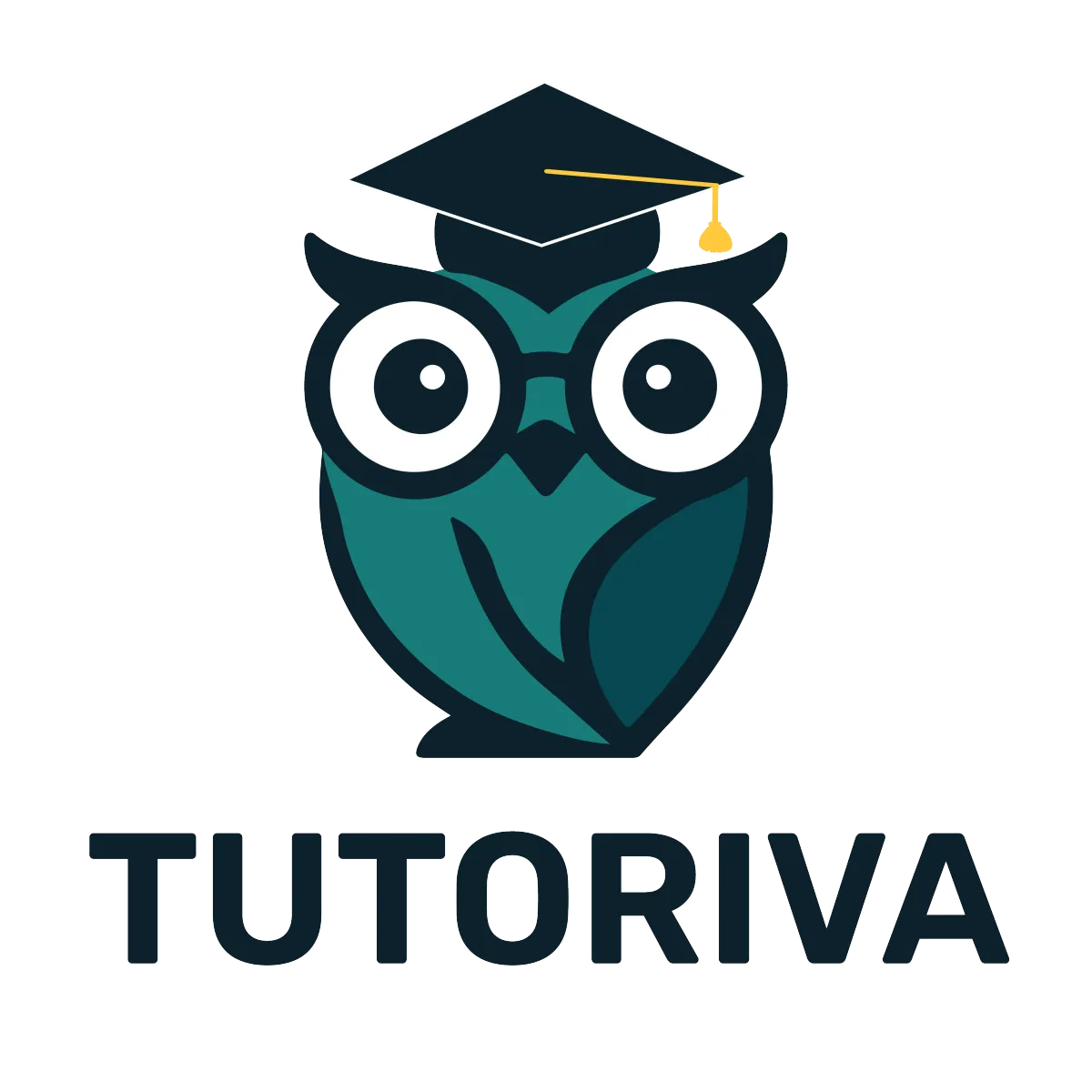
STUDY SKILLS
We Show Students How to Break Down Complex Assignments, Avoid Procrastination, and Manage Their Time Wisely


What Makes Our Study Skills Tutoring Different
Every child learns differently, and every child can learn how to study. That’s why our Study Skills tutoring isn’t one-size-fits-all.
Here’s what makes Tutoriva’s approach truly different:
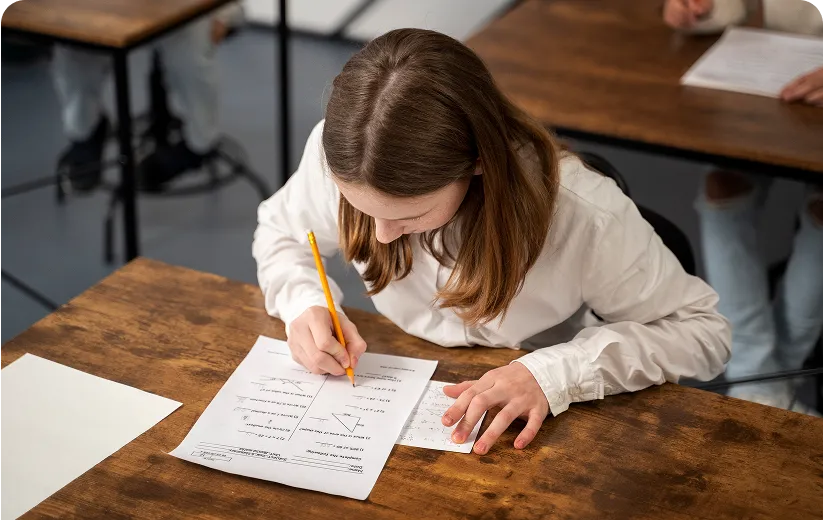
Personalized Diagnostic Testing
We start with a skill-by-skill diagnostic to identify your child’s exact strengths and gaps in reading, writing, math, and critical thinking.

Custom-Tailored Study Skills Plan
Based on test results and learning style, we create a weekly plan targeting only the study habits your child actually needs to improve.

Real-Time Application With Schoolwork
Tutors use your child’s actual homework, tests, and class materials to teach and apply skills, so learning transfers right back into the classroom.

Trained for All Learning Profiles
We work with students with ADHD, dyslexia, or executive challenges, and also support high-achievers, athletes, and busy kids in transition years.
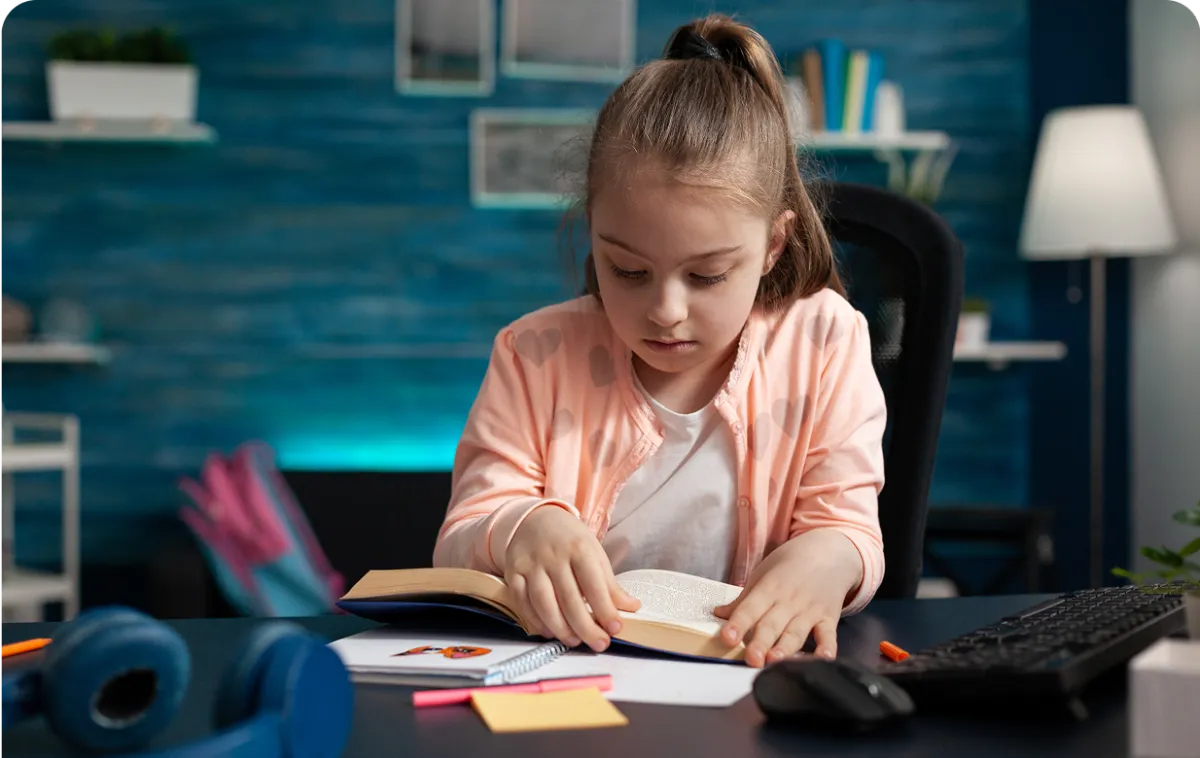
Tools That Build Academic Independence
We teach students how to use planners, checklists, flashcards, and time blocks, so they gain habits they’ll use in every grade and subject.
What’s Included in Our Study Skills Tutoring Services

Planning and Prioritizing
We teach students to plan each week using a visual planner, break tasks into daily steps, and prioritize by deadline and importance.

Organization Systems
We show students how to organize class notes by subject, use labeled folders and tabs, keep binders neat, and maintain a clean workspace, both physical and digital.

Time Management
Students learn to estimate how long assignments will take, set timers for focused work blocks, and build realistic after-school routines to stay on schedule.

Note-Taking and Test Prep
We teach proven techniques like Cornell Notes, visual mapping, and summary writing, along with test calendars, study guides, and review cycles that reduce test-day anxiety.

Active Reading Skills
We teach annotation strategies, SQ3R (Survey, Question, Read, Recite, Review), and how to pull main ideas from dense texts, so reading becomes a purposeful learning activity.

Memory and Retention Techniques
We teach spaced repetition, mnemonic devices, and visualization tools to help students recall facts, vocabulary, and concepts during tests and class discussions.

Focus and Attention Training
Students learn to set clear study goals, use methods like Pomodoro (25-minute work, 5-minute break), and remove distractions to stay focused and productive.

Learning Style Awareness
We help students identify their preferred learning mode, visual, auditory, kinesthetic, and adapt study techniques that align with how they naturally learn best.

Self-Advocacy & Communication
We teach students how to write respectful emails to teachers, ask clarifying questions in class, and follow up on missed work without parent prompting.

Using an Academic Planner
Students learn to log homework, test dates, and project steps daily. We coach them to review and update their planner at the same time each day for consistency.
We Make Learning a New Language Work Around Your Schedule
Language learning works best when it fits naturally into your routine. At Tutoriva, we make it easy to choose a tutoring schedule that aligns with your availability, motivation, and learning goals.
Some learners benefit from weekly sessions that build consistent progress over time. Others prefer short-term support before exams, travel, or study abroad programs. Whatever your timeline, we’ll help you find the right pace—without locking you into a rigid commitment.
Many students begin to see noticeable improvement after just 6 to 8 focused lessons, especially when paired with practice activities and guided homework. For deeper fluency and conversational confidence, a few months of consistent sessions can make a lasting difference.
You’re in full control of how often sessions occur—and how fast you want to advance.
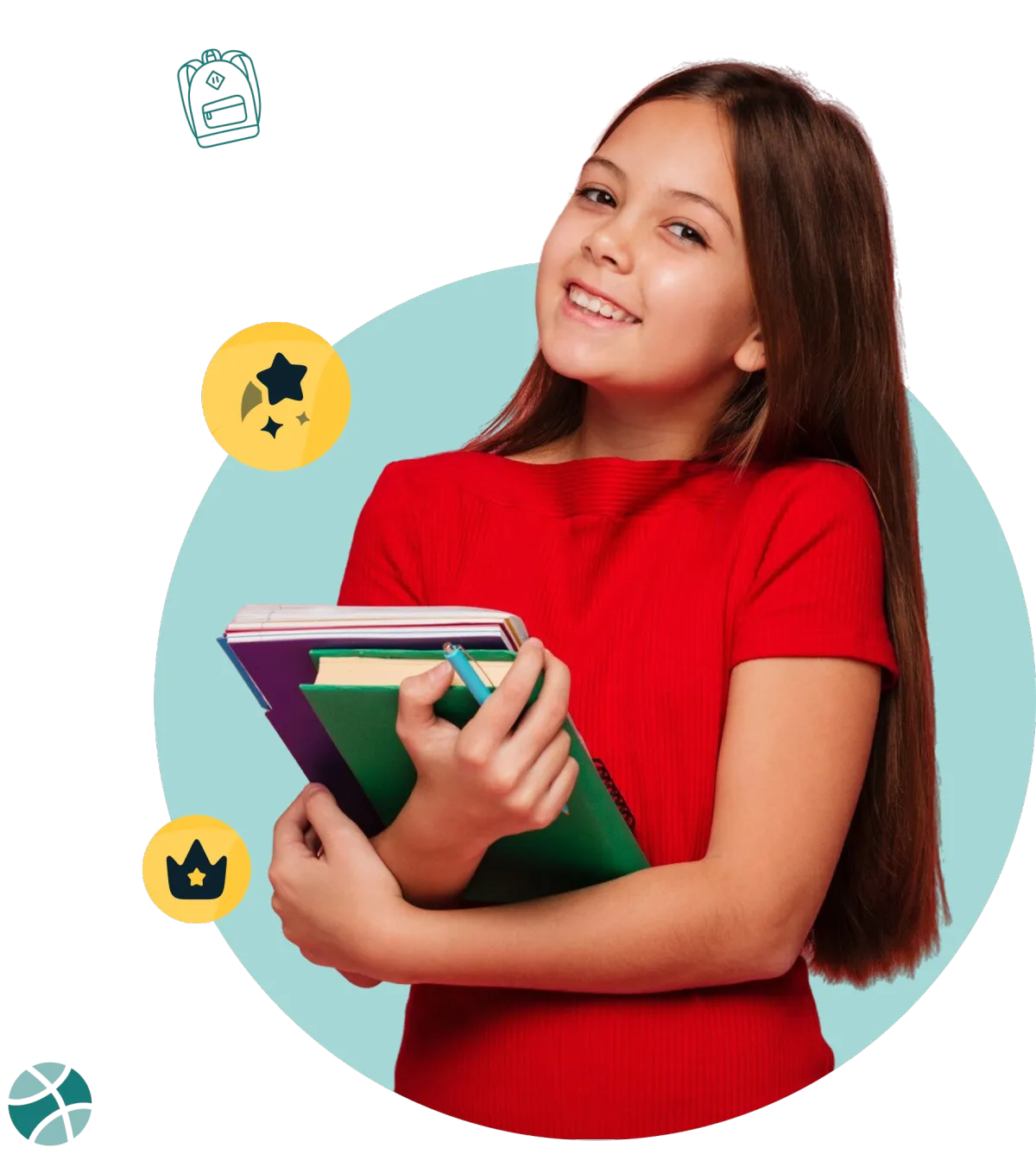
Difference Between Study Skills and Study Styles
Study styles (like visual or auditory learning) are how your child prefers to take in information. Study skills are the tools they need to stay organized, manage time, take notes, and prepare for tests. Both matter, but they’re not the same.
Here’s how the two differ, and how they work together in our program:
Study Skills (What We Teach)
Study Styles (How Your Child Learns Best)
Definition
Learned techniques and habits that help students manage school effectively.
A student’s natural preference for how they process information.
Examples
Time management, note-taking, organization, test prep, active reading.
Visual (seeing), Auditory (hearing), Kinesthetic (doing).
Purpose
To equip students with practical tools that improve academic performance across all subjects.
To adapt learning methods to align with a student’s natural learning tendencies.
Application
Directly taught, modeled, and practiced during tutoring sessions with clear goals and structure.
Guide how instruction is delivered, such as using diagrams for visual learners or discussions for auditory learners.
Impact
Help students complete assignments on time, retain information better, and reduce academic stress.
Matching teaching methods to a student’s study style increases engagement and improves learning efficiency.
How Our In-Home Study Skills Tutoring Works
When you enroll your child in Tutoriva’s Study Skills program, here’s exactly what you can expect, step-by-step:
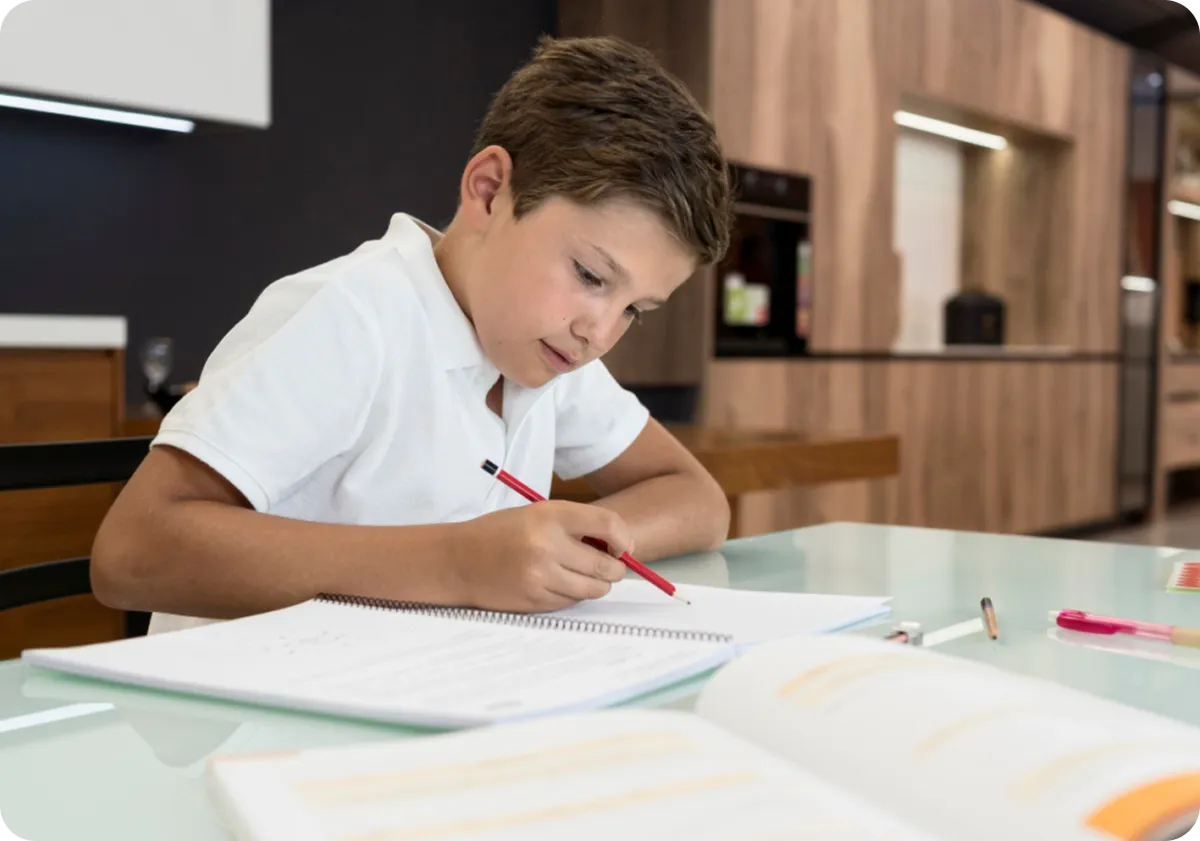

Diagnostic Testing
We start with a written and oral diagnostic test covering academic areas, like main idea identification, grammar correction, math reasoning, and logic puzzles. This shows exactly where your child excels and where they’re falling behind.


Learning Style Assessment
Your child completes a short quiz to determine whether they learn best by seeing (visual), hearing (auditory), or doing (kinesthetic). This helps us match our teaching approach to how your child naturally processes information.


Personalized Study Skills Plan
Based on both (Step 1 and 2) assessments, we create a weekly lesson plan targeting only the study skills your child actually needs. That could include labeling folders, writing weekly goals, using highlighters for active reading, or building test calendars.
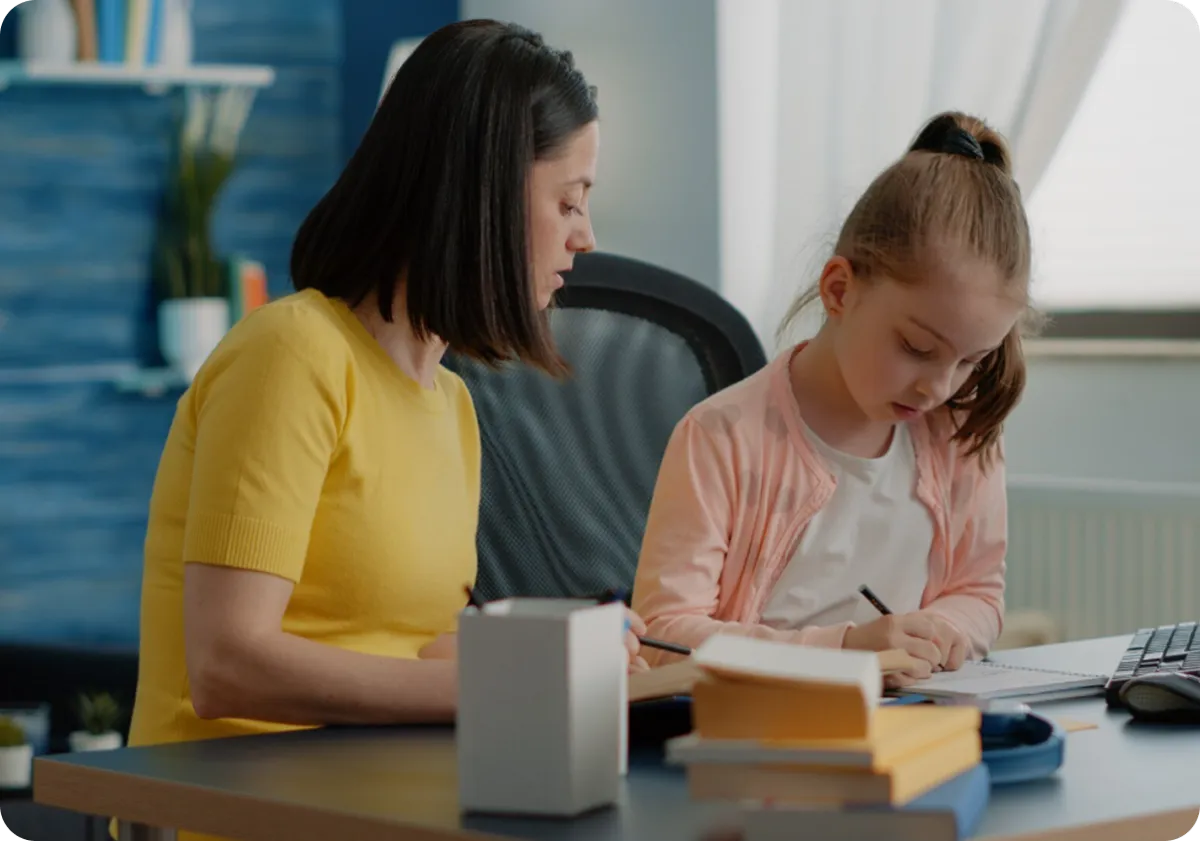

In-Home 1-on-1 Tutoring Sessions
Our tutor visits your home once or twice a week to teach, demonstrate, and rehearse those skills using your child’s current assignments. We might show them how to summarize a science chapter, organize a history binder, or prep for Friday’s quiz.


Hands-On Practice With Tools That Work
We equip your child with physical tools, like a planner they fill out daily, color-coded folders, index cards for flash review, or a timer for 25-minute focus blocks and guide them on how to use each one with their real classwork.


Parent Progress Updates After Each Session
After every session, we send you a report with what was taught, what your child practiced, where they improved, and what’s coming next, so you can see progress in real time.


Skill Mastery and Long-Term Growth
As your child masters foundational skills, we reinforce them with new challenges, building academic habits that stick and grow with them through each school year.
Once your child consistently uses foundational skills, we raise the bar, training them to manage long-term projects, track their own grades, and build independent routines for middle or high school success.
Learning Foreign Languages with a Tutor vs DIY
Apps, self-study books, and YouTube channels have their place—but they can’t replicate the guidance and accountability of a dedicated tutor. Here’s how the two approa ches compare:
Definition
Study Skills (What We Teach)
Learned techniques and habits that help students manage school effectively.
Study Styles (How Your Child Learns Best)
A student’s natural preference for how they process information.
Examples
Self-Teaching (Apps, Books, Videos)
Time management, note-taking, organization, test prep, active reading.
Tutoriva Language Tutoring
Visual (seeing), Auditory (hearing), Kinesthetic (doing).
Purpose
Self-Teaching (Apps, Books, Videos)
To equip students with practical tools that improve academic performance across all subjects.
Tutoriva Language Tutoring
To adapt learning methods to align with a student’s natural learning tendencies.
Application
Self-Teaching (Apps, Books, Videos)
Directly taught, modeled, and practiced during tutoring sessions with clear goals and structure.
Tutoriva Language Tutoring
Guide how instruction is delivered, such as using diagrams for visual learners or discussions for auditory learners.
Impact
Self-Teaching (Apps, Books, Videos)
Help students complete assignments on time, retain information better, and reduce academic stress.
Tutoriva Language Tutoring
Matching teaching methods to a student’s study style increases engagement and improves learning efficiency.
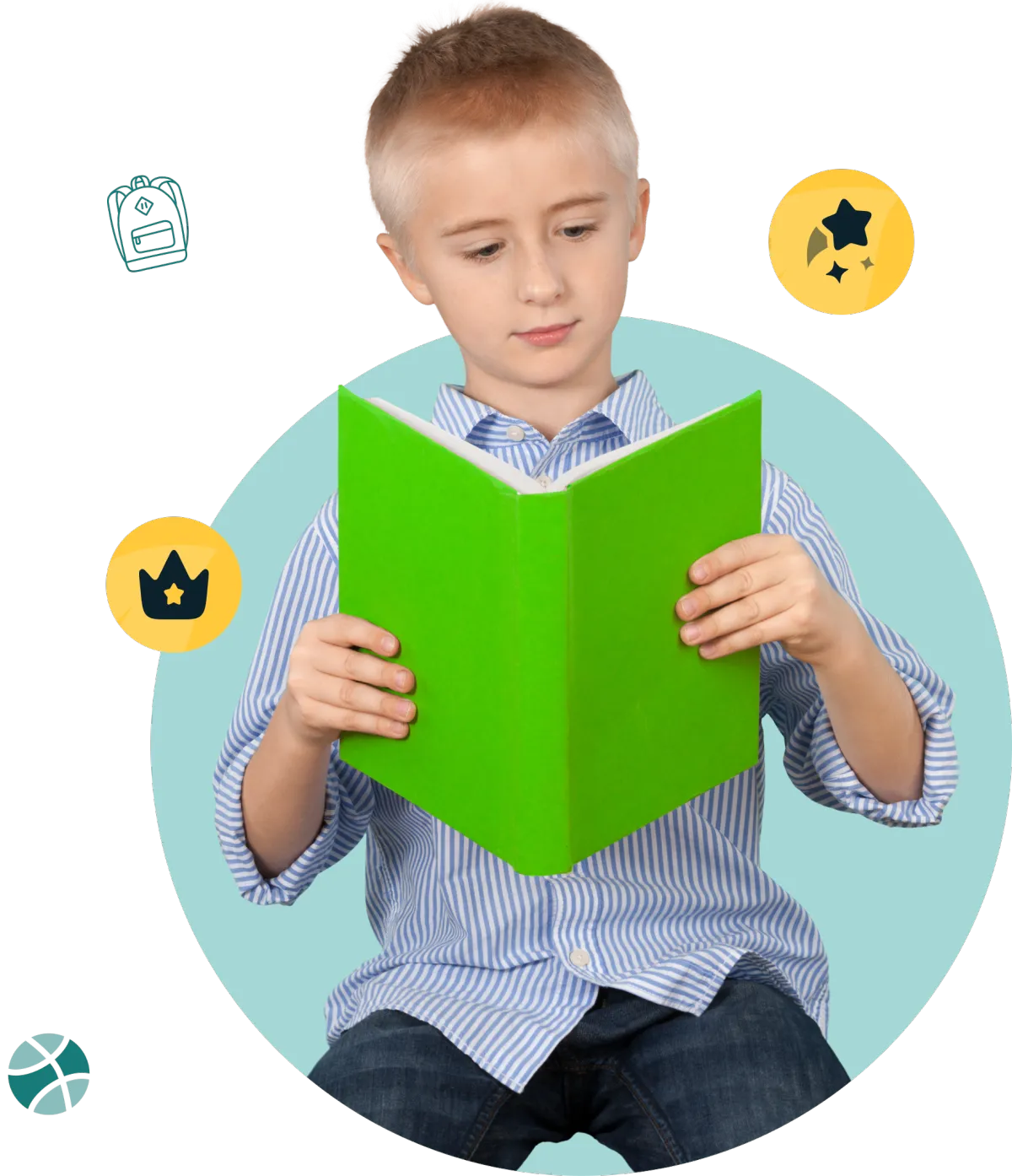
Signs Your Child May Need Help With Study Skills
Struggles to start or complete homework
Frequently forgets assignments, deadlines, or materials
Disorganized binders, folders, or digital files
Lacks a consistent homework routine or study schedule
Underperforms on tests despite “studying”
Has trouble staying focused for more than 15–20 minutes
Study Skills Tutoring for Every Academic Level
Here’s how we tailor our support at every stage, from foundational habits in elementary school to advanced strategies for college:
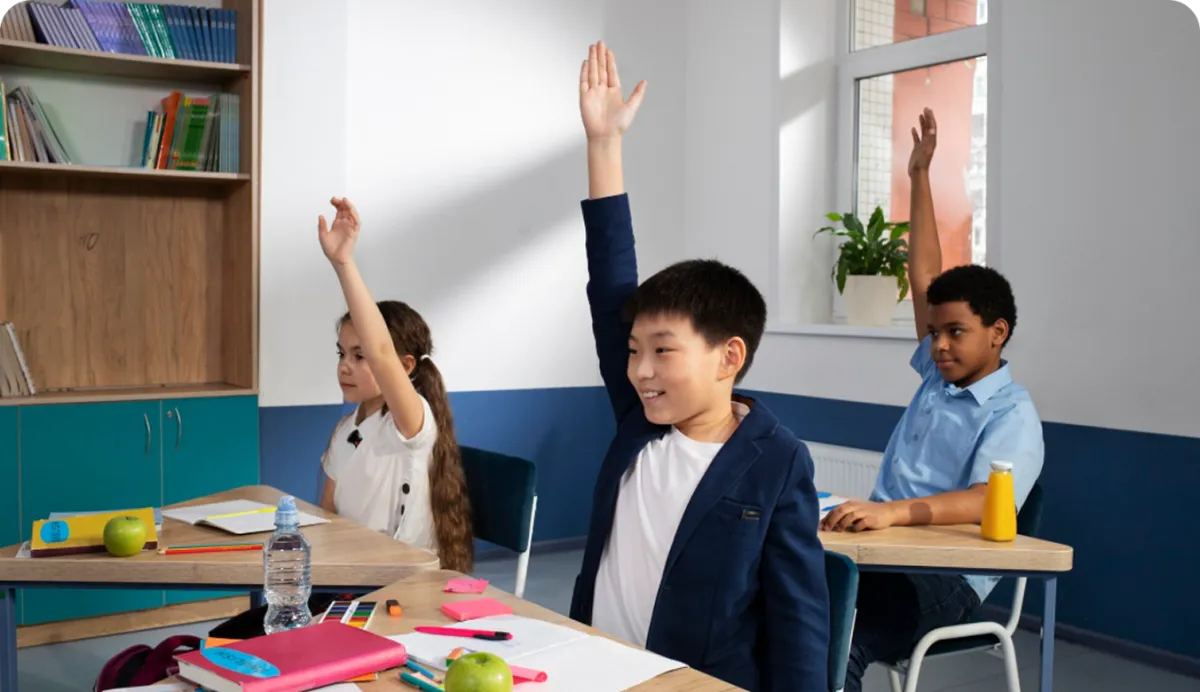
Elementary School
We teach young students how to organize folders, complete homework independently, follow written directions, and use simple planners, laying the foundation for academic responsibility early.

Middle School
We help students manage multi-class schedules, prioritize assignments, take structured notes, and study for tests using checklists and weekly planning tools.

High School
We train students to manage long-term projects, prepare for exams using advanced strategies, create study calendars, and advocate for themselves, boosting readiness for college-level expectations.

College Students
We support college students in building semester-long planners, managing independent workloads, reading academic texts critically, taking lecture notes efficiently, and balancing class, work, and personal life.
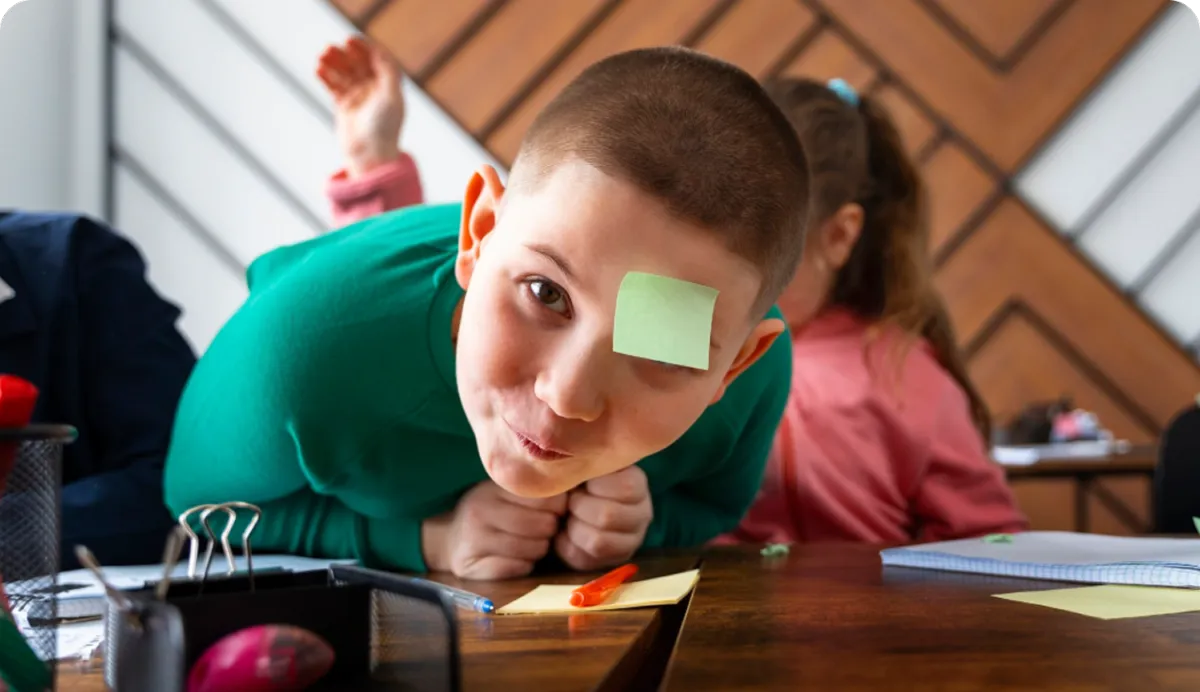
Students with ADHD, Learning Differences, or Executive Function Challenges
Across all grade levels, we adapt every skill—like task initiation, time awareness, and organization for students who need more structure, modeling, and guided practice to succeed.
Let’s Talk About Your Child’s Challenges
Every student can learn how to study smarter, and we’re here to help make that happen. If your child is struggling with organization, focus, or study habits, we’d love to talk.
No pressure, just a conversation to see if our personalized Study Skills tutoring is the right fit for your family.
